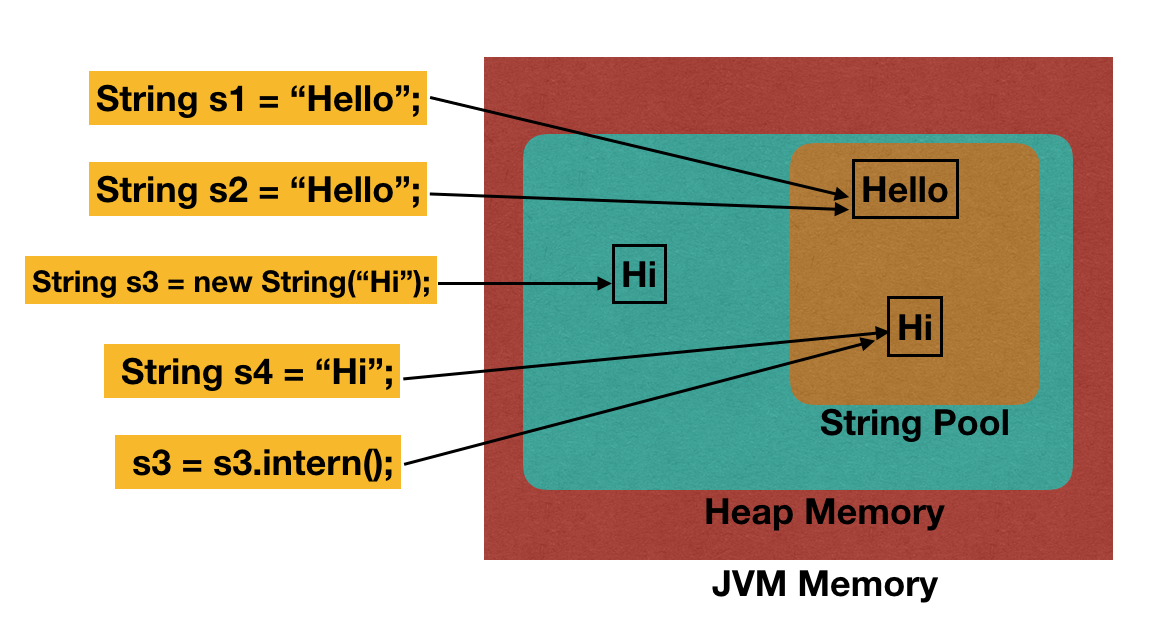Why Are Strings Immutable in Java? Secret Factors and Advantages Explained
Checking Out the Advantages of Immutable Strings in Modern Shows Paradigms
In the world of modern-day programming standards, the principle of immutable strings stands as a foundation of durable software application growth. By embracing immutable strings, developers can make sure boosted information integrity, improved thread safety, streamlined debugging processes, enhanced protection actions, and effective efficiency optimization.
Improved Information Integrity

By avoiding the modification of string items, immutability eliminates the risk of unintentional adjustments to the information they hold. This not only boosts the protection of the details yet additionally enhances the integrity of the code that relies on these strings.
Immutability also supports safer multithreading environments, as concurrent access to unalterable strings does not pose the danger of information corruption with simultaneous alterations. This residential property streamlines the process of handling strings in identical programming situations.
In significance, immutability works as a protective guard around the data kept within strings, improving their integrity by making sure that when specified, their values continue to be unmodified throughout the program's execution.
Boosted Thread Safety And Security
Immutable strings improve the thread security of programs by making certain that when a string object is developed, its worth can not be changed. This building gets rid of the risk of simultaneous strings trying to change the exact same string concurrently, which could bring about data corruption or inconsistent states in the program - Why are strings immutable in Java?. In a multi-threaded environment, where multiple threads accessibility and manipulate information concurrently, the immutability of strings provides a degree of safety and security by guaranteeing that the information stays unmodified throughout its lifecycle
Simplified Debugging Procedures
Provided the improved string safety facilitated by unalterable strings, a substantial advantage arises in the realm of streamlined debugging processes. Immutable strings, once produced, can not be modified, making it simpler to map the flow of data and determine the source of insects in a program. This immutability makes certain that strings continue to be consistent throughout the execution of the program, lowering the likelihood of unexpected changes that can cause mistakes.
When debugging with mutable strings, developers usually come across problems where a string's worth is changed inadvertently, making it testing to determine the root cause of Why are strings immutable in Java? a pest. Nevertheless, with unalterable strings, the information stays unchanged, enabling programmers to concentrate on analyzing the actual reasoning of the code instead than locating where and when a string was customized improperly.
Furthermore, unalterable strings streamline the debugging procedure by enabling much easier reproduction of pests. Since unalterable strings do not change state, developers can recreate and examine pests better, resulting in quicker identification and resolution of problems within the codebase. This structured debugging process eventually contributes to greater software application quality and boosted overall growth performance.

Increased Safety And Security Procedures
Enhancing information defense and fortifying system stability, the utilization of unalterable strings in software applications adds considerably to enhanced security procedures. Unalterable strings, when produced, can not be customized, supplying an essential protection versus destructive meddling or unapproved gain access to. By making sure that sensitive data kept in strings remains unaltered throughout the program's execution, the threat of information breaches or injection assaults is substantially reduced. Why are strings immutable in Java?. Immutable strings also play a vital function in preventing common security susceptabilities such as barrier overflows and SQL shot strikes, as attempts to control string data at runtime are inherently limited.
Furthermore, the immutability of strings improves the predictability of program behavior, making it simpler to validate inputs and protect against unforeseen adjustments that can jeopardize safety and security. This predictability streamlines the process of bookkeeping and verifying code, enabling programmers to recognize prospective security loopholes better. Generally, including unalterable strings into software program growth methods not just improves the robustness and dependability of applications yet likewise reinforces their resilience versus safety and security hazards.
Efficient Performance Optimization
When dealing with mutable strings, operations like concatenation or substring development usually result in the production of new string things, leading to memory expenses and raised handling time. By allowing strings to remain stable and continuous, unalterable strings assist in much better memory monitoring and caching opportunities, inevitably improving the general efficiency of the software.
Considering that unalterable strings can not be modified when produced, they can be shared read what he said throughout threads without the risk of unforeseen changes, decreasing the requirement for synchronization mechanisms and improving concurrency. Unalterable strings simplify debugging procedures as developers can trust that a string's value will continue to be constant throughout the program's implementation, getting rid of potential errors caused by mutable state modifications.
Verdict
In final thought, the advantages of using immutable strings in contemporary programs paradigms can not be overstated. Boosted data integrity, enhanced string safety and security, streamlined debugging procedures, raised safety and security steps, and efficient performance optimization all contribute click for info to the overall effectiveness of programming tasks. By incorporating immutable strings into programs methods, programmers can benefit from an extra durable and trusted codebase.
Immutability, a crucial feature of strings in programs languages such as Java and Python, makes certain that once a string things is developed, it can not be modified or customized.Immutable strings enhance the string safety and security of programs by making certain that once a string item is created, its value can not be modified. Immutable strings also play a crucial function in stopping usual security susceptabilities such as buffer overflows and SQL shot attacks, as efforts to control string information at runtime are inherently limited.
By allowing strings to remain consistent and stable, immutable strings assist in better memory monitoring and caching opportunities, inevitably improving the general effectiveness of the software application.
Unalterable strings simplify debugging procedures as programmers can rely on that a string's value will stay consistent throughout the program's execution, removing prospective mistakes created by mutable state adjustments.